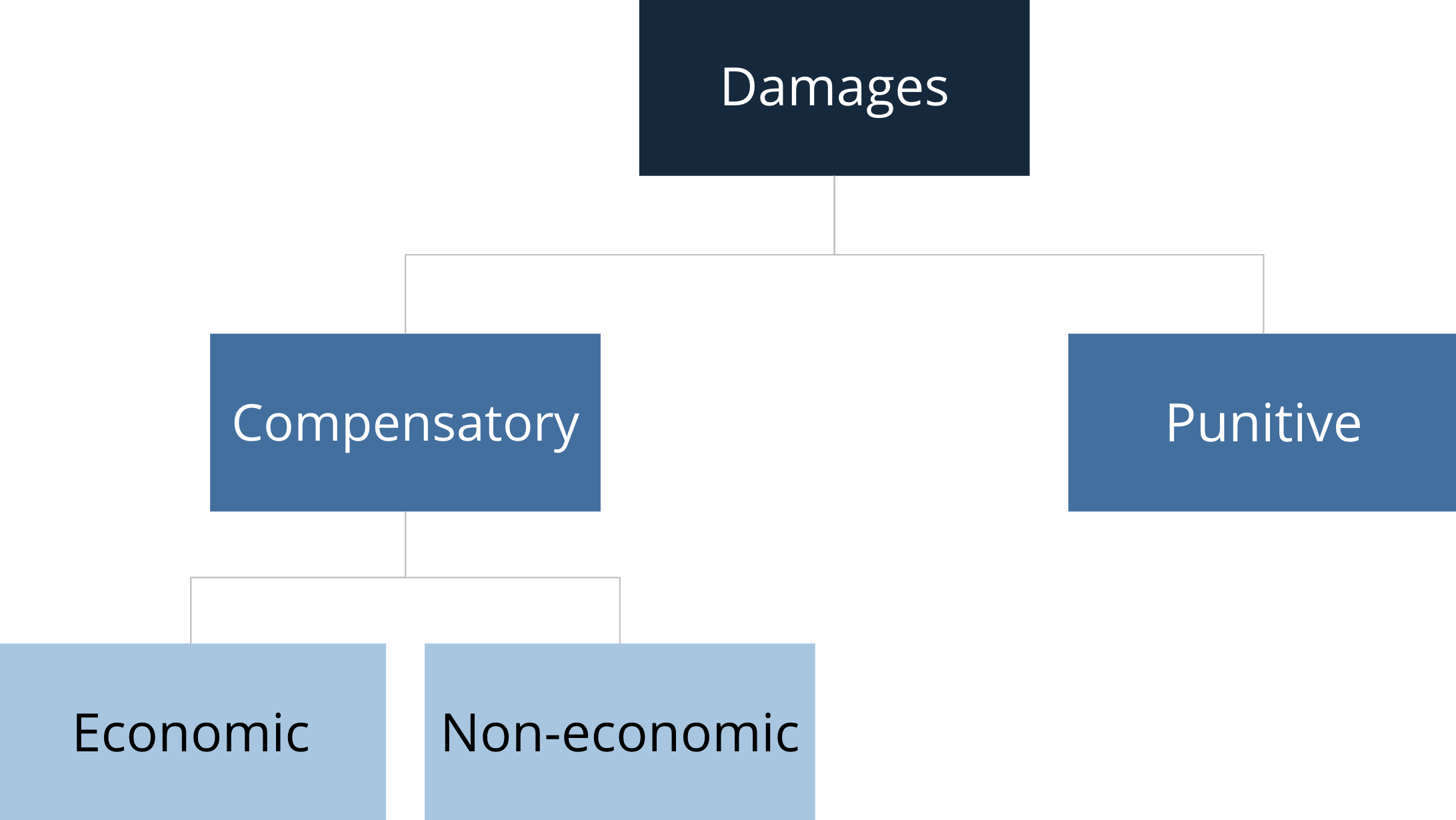In some cases, there are limits to how much you can recover in punitive damages in the Tar Heel State
If you’ve been injured because of someone’s negligence, you deserve to receive compensation that covers the cost of your medical treatment, lost wages, and other related expenses. If the injury was very severe, you might even be able to recover for damages like pain and suffering, mental anguish, and sometimes punitive damages (which are additional damages that are intended to punish a defendant for especially wrongful behavior).
Generally, there is no cap on how much you can recover in a personal injury lawsuit in North Carolina.
You might hear stories on the news about what sounds like astronomically high verdicts for personal injury cases, but the reason they’re newsworthy is that those are unusual outcomes in a North Carolina lawsuit.
But let’s back up a little.
“Damages” are the amount of money you can be awarded from a civil lawsuit or settlement. The purpose of tort law (in which someone’s negligence caused your injury) is to make a plaintiff whole. In other words, the court system is designed to restore an injured person to the financial condition they’d be in if the accident had never happened.
Compensatory damages in North Carolina lawsuits
There are two types of damages in North Carolina: compensatory and punitive. Compensatory damages are further classified as economic or non-economic.
Compensatory damages are intended to pay your actual costs related to the accident, but also to help you recover for the intangible aspects to your injury, like pain and suffering.
Economic damages
Economic damages are those that have a specific financial cost. This might include:
- Medical treatment. This includes the cost of medical care, both to repay what you’ve already spent on care and to pay for estimated future treatment. Medical treatment costs can include doctor and hospital visits, prescription medication, assistive devices, rehabilitative therapies, and any other costs related to your physical recovery.
- Lost income. You can also claim salary and wages as a loss from an accident. This might include the time you had to take off from work following your injury, a reduction in wages if you had to return to a different job than the one you had before the accident, and loss of earning capacity. Loss of earning capacity is the difference between what you would’ve earned for the remainder of your lifetime and what you will actually earn because of the accident.
- Property loss. If you’re filing a lawsuit because of a car accident, for instance, the cost of replacing or repairing your car would be included under property loss. You’re entitled to the fair market value of any property lost, including your home or other belongings if they were damaged as part of the injury.
Non-economic damages
Non-economic damages don’t have a specific monetary value. This category of damages includes:
- Emotional distress. Emotional distress damages compensate a plaintiff for the non-physical effects of an injury. This might include fear, anxiety, sleep disturbances, post-traumatic stress disorder, or other psychological conditions that arise following trauma or serious injury.
- Loss of enjoyment. Life is about more than the necessities. You might be able to eat, sleep, and function, but can you enjoy your time? If you were an athlete disabled in an accident, or a pianist who effectively lost the use of your hands, you might be suffering because you’ve lost a substantial amount of enjoyment in your life. You don’t need to be an Olympian or Beethoven to suffer a loss of enjoyment. Anyone who has been injured to the extent that they lose some level of capacity to do the things they previously enjoyed—even if it’s walking your dog or playing with your kids—could be eligible for a damage award for loss of enjoyment.
- Loss of consortium. If a loved one has been in an accident and lost the ability to provide love, affection, companionship, comfort, or even the ability to participate in household responsibilities and child-rearing, you might have a loss of consortium claim.
The courts can’t fix your physical condition. If you have lasting physical trauma like a brain injury, orthopedic injury, loss of a limb or organ, or disfiguring scars, you could experience effects for the rest of your life. In addition, a severe injury can leave you with emotional distress, loss of enjoyment of life, and pain and suffering.
You might also be unable to return to work or do the same job you had prior to the accident, leaving you with reduced or no income. And so, the only way the court can “heal” your condition is to ensure that you receive the money you need to cover your costs.
Punitive damages in North Carolina accident claims
Punitive damages are calculated separately from (or in addition to) compensatory damages as a punishment or deterrent to a defendant when the action that caused the injury was malicious, willful, or especially egregious.
North Carolina courts might award punitive damages based on the egregiousness of the conduct. Egregious, which means “outstandingly bad; shocking,” refers to willful or wanton conduct, fraud, or malice. North Carolina law defines “willful or wanton conduct” as “the conscious and intentional disregard of and indifference to the rights and safety of others, which the defendant knows or should know is reasonably likely to result in injury, damage, or other harm.”
North Carolina caps punitive damages at 3 times the amount of the compensatory damages or $250,000, whichever is higher. Drunk driving is one exception to the damage cap.
Damage caps in North Carolina medical malpractice cases
Medical malpractice is another exception when it comes to damage caps in North Carolina. Generally, there isn’t a cap on how much you can recover in a personal injury lawsuit. This means that for most civil cases in the North Carolina court system, a plaintiff can recover economic and non-economic compensatory damages with no limit or cap on the amount.
However, medical malpractice is an exception to this rule.
To be clear, there is no limit to what you can recover for economic damages in a medical malpractice claim. You can always recover the full amount of damages for the expenses you incurred for medical treatment, lost wages, and related costs.
As for non-economic damages, you can recover up to $500,000 in damages for pain and suffering, emotional distress, loss of consortium, and loss of enjoyment of life in a North Carolina medical malpractice case. This amount is adjusted each year for inflation.
As is the case with many laws, there are always exceptions. For instance, there is no cap on medical malpractice claims if the case is based on the patient’s disfiguration or permanent injury because of the defendant’s recklessness or gross negligence.
If you have questions about how much you can recover in damages for a North Carolina lawsuit, you should consult a lawyer. The Enjuris law firm directory is a free source for finding a North Carolina personal injury lawyer near you.
See our guide Choosing a personal injury attorney.



